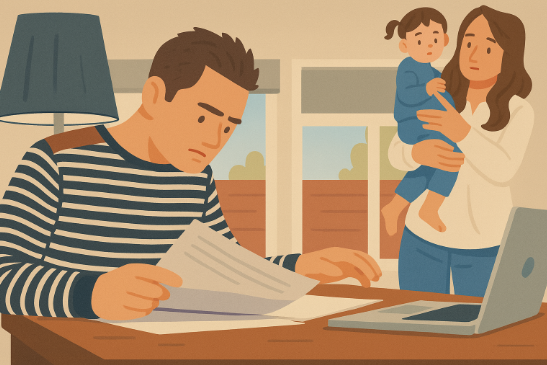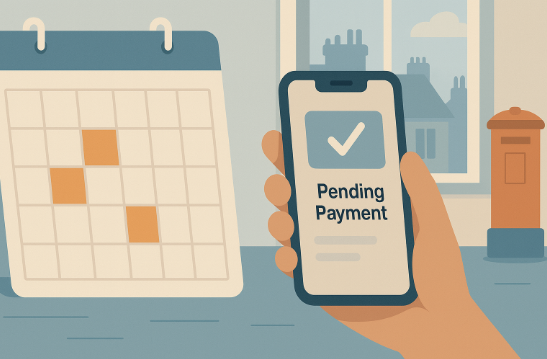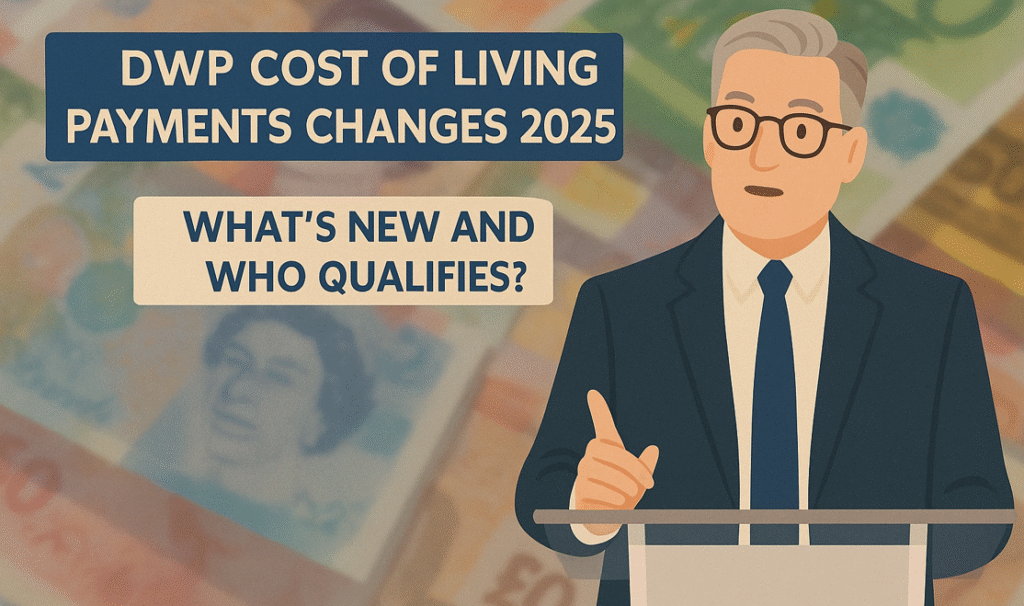Wondering what’s going on with the DWP Cost of Living Payments Changes in 2025? You’re not alone. With bills still sky-high and food prices showing no signs of easing, many people are counting on extra support. But here’s the short version: the government isn’t handing out any new Cost of Living Payments in 2025.
Instead, they’re making a bunch of other changes—some helpful, some not so much. In this guide, we’ll break it all down in plain English: what’s changing, who’s affected, what support is still around, and what you can do to stay financially afloat.
Let’s walk through what you need to know, without the jargon.
What exactly is changing with DWP Cost of Living Payments in 2025?

Why is the DWP stopping these payments this year?
If you were hoping for another lump sum like last year’s £299 payment, here’s the tough truth: it’s not happening. The Department for Work and Pensions (DWP) confirmed that 2024 was the final round of Cost of Living Payments.
Here’s what the government says:
-
They’re shifting focus to long-term benefit increases instead of one-off cash boosts.
-
The economy’s stabilising a bit (though it doesn’t always feel like it), so emergency payments are being wound down.
-
They believe increasing regular benefits is more predictable and easier to manage long term.
Who will be most affected by the end of Cost of Living Payments?
Let’s be honest—this hurts most if you’re already on a tight budget. You’ll feel the change more if you rely on:
-
Income Support
-
Pension Credit
-
Tax Credits (Working or Child)
People with disabilities, carers, and pensioners are especially affected. For many, that extra £900 or so in 2023 and 2024 was a lifeline. Without it, some households could face real choices between heating and eating.
What else is changing along with the end of DWP Cost of Living Payments?

What benefit increases are coming in 2025?
Even though the lump sums are gone, the DWP did boost some regular benefits in April 2025. Here’s a quick breakdown:
-
Most working-age benefits (like Universal Credit) went up by 1.7%
-
The State Pension rose by 4.1% thanks to the triple lock
It’s not life-changing, but every little helps, right?
Still, these increases might not go far when energy bills and food prices are still high. That’s why it’s worth checking if you qualify for anything extra.
What’s happening to Universal Credit and PIP?
| Change | Universal Credit (UC) | Personal Independence Payment (PIP) |
|---|---|---|
| Benefit migration | All Tax Credit and legacy benefit claimants move to UC by April 2025–Jan 2026 | No change to how PIP is claimed, but new criteria coming |
| Health-related support | Health element stays at £97/week for existing claimants; new claims drop to £50/week | Stricter rules – must score 4+ points in specific daily tasks |
| Eligibility changes | No major changes in eligibility, but tighter rules expected post-2026 | Tighter assessment could reduce the number who qualify |
| Transitional protections | Yes – existing claimants may receive top-ups to avoid income drops | Not applicable |
| Assessment process | Mostly remains the same, though possible tweaks to work capability reviews | DWP may revamp how conditions are assessed under new reforms |
How will these reforms actually impact you?
Let’s compare before and after, so you can see the effect:
| Type of Support | Before 2025 | From April 2026 |
|---|---|---|
| UC Standard Allowance | Around £91/week | Around £98/week |
| UC Health Element | £97/week | £50/week (new claims only) |
| PIP Eligibility | General health assessment | Must score 4+ points |
How can you manage without Cost of Living Payments?

What support is still available?
Just because the £299 payments are gone doesn’t mean help disappeared. You might be able to claim:
-
Pension Credit – over £3,000 a year extra if you’re over State Pension age
-
Council Tax Reduction – remove funds from your monthly expenses
-
Discretionary Housing Payment – if you’re struggling with rent
-
Household Support Fund – help with food, heating, or essentials (still running in many councils)
How to check eligibility and claim other support?
Here’s what you can do today:
-
Use a benefits calculator like Turn2Us or EntitledTo
-
Check your local council website for grants or emergency funds
-
Talk to Citizens Advice—they can help with forms and appeals
-
Don’t forget to check energy discount schemes like Warm Home Discount or water bill help
You may be losing out on money that is rightfully yours. According to government estimates, unclaimed benefits in the UK total £23 billion annually.
How can you avoid scams while claiming support?
Unfortunately, when times are tough, scammers come out. Here’s how to stay safe:
-
Ignore emails or SMS requesting bank information purporting to be from DWP
-
DWP never contacts you this way—they pay support automatically
-
If something seems off, report it by forwarding messages to 7726 or visiting Action Fraud
What’s the government’s reasoning?
On the flip side, the government says they’re focused on long-term planning:
-
They want to encourage people back into work
-
They’re aiming for a simpler, more sustainable system
-
And they want to make sure money goes to those who need it most
That might work for some, but others argue the transition needs to be fair—and better explained.
What’s not being talked about enough in the DWP Cost of Living Payments Changes 2025?

How does support vary depending on where you live in the UK?
Here’s something that often gets overlooked—where you live matters more than you think when it comes to support.
Every local council runs things a bit differently. That means the amount of help (and how easy it is to get) can vary wildly. For example:
-
Some councils hand out larger payments from the Household Support Fund
-
Others offer food vouchers, emergency cash, or help with school uniforms
-
A few make you jump through hoops just to apply
So, if your mate in Manchester got £200 and you’re struggling to get £50 in Brighton—it’s not you. It’s the system.
What can you do?
-
Visit your local council’s website—that’s where you’ll find exact details
-
Don’t assume you’re not eligible just because someone else was denied
-
Ask your council directly if you’re unsure—sometimes support isn’t well advertised
This kind of postcode lottery is frustrating, but staying informed helps you make the most of what’s available.
What protections are in place for people moving to Universal Credit?
If you’re still on old-style benefits like Income Support, Tax Credits, or Housing Benefit, you’re probably thinking: What happens when I have to move to Universal Credit?
Good news—you won’t get kicked off without warning.
The DWP is using something called “managed migration” to move people gradually:
-
They’ll send you a Migration Notice explaining what’s happening
-
You’ll usually have 3 months to apply for UC
-
If you apply on time, you might get “transitional protection”—extra money to stop you losing out right away
The full switch must happen by January 2026, so if you haven’t received a letter yet, don’t panic.
Here’s what you should do:
-
As soon as you get your letter, don’t ignore it—apply quickly
-
If you need help, Citizens Advice can walk you through it
-
Transitional protection doesn’t last forever—it gets adjusted over time
So, take action early and make sure you don’t miss out on the support you’re due.
What are some practical tips to avoid scams during all these changes?
Sadly, when the system changes, scammers get to work. And since there won’t be any more Cost of Living Payments in 2025, suspicious emails and messages are proliferating.
Here’s how to stay safe:
-
DWP will never text or email you out of the blue asking for bank info
-
They never say things like “click here to claim your cost of living bonus”
-
If you’re owed money, they pay it automatically into your account
What should you do if you get a suspicious message?
-
Don’t click any links
-
Forward the message to 7726 (it’s free)
-
Report emails or calls to Action Fraud
Remember: if you ever feel unsure, go straight to the official gov.uk website or contact DWP through their verified phone lines.
Conclusion
So, what’s the bottom line on the DWP Cost of Living Payments Changes 2025?
Here it is:
-
This year, the DWP will not be awarding any new Cost of Living Payments.
-
They’re raising benefits slightly, but cutting or freezing others
-
You might still be eligible for unclaimed support
-
And there are big changes coming to Universal Credit and PIP
It’s a lot, but you’re not alone. There are still ways to get help—you just need to know where to look.
FAQs
Will a Cost of Living Payment arrive in 2025?
No. There won’t be any more Cost of Living Payments in 2025, according to the DWP.
How much did benefits rise in April 2025?
Working‑age benefits rose 1.7 %, and the State Pension rose 4.1 % under the triple‑lock.
Does PIP eligibility change in 2025?
Yes. DWP plans to raise eligibility to 4 or more points, which may narrow access for some claimants. Health-related UC elements will freeze or shrink too.
Is there other cost‑of‑living support still running?
Yes—local programmes like the Household Support Fund (up to March 2026), Warm Home Discount, and council hardship grants remain active.
How can I avoid benefit‑related scams?
Remember the DWP never asks via email or text for bank or personal details. Report suspicious messages to 7726 or Action Fraud.
I’m Laura Wilson, a passionate blogger and content creator with a deep interest in business, finance, and entrepreneurship. I’ve had the opportunity to write for several premium blogs, sharing insights & practical advice for individuals & small businesses. I’m the founder and publisher of ukbusinessmag.co.uk, where I focus on creating valuable, easy-to-understand content to help UK startups & SMEs grow.



